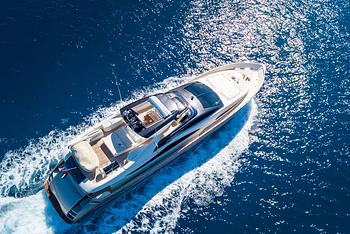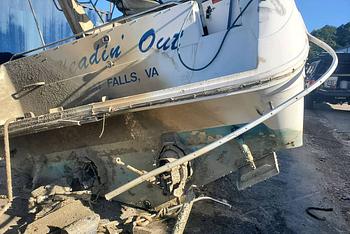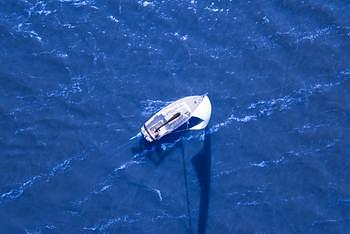Boating is a safe and fun activity but, like anything else in life, when things go wrong it’s important that you’re financially protected by the right kind of boat insurance. In our Marine Insurance Guide we’ve answered frequently asked questions such as: Do I Need Boat Insurance? What Does Boat Insurance Cover? What Factors Affect the Price of a Policy? How Much Does Boat Insurance Cost? and How Do I Choose a Boat Insurer? Here we’re going to answer the question: What Boat Insurance Do I Need? and take a look at questions like these:

What Are the Different Kinds of Boat Insurance Policies?
To determine which policy you need, first consider the options. While there are many different types of boats, there are in fact not that many different types of boat insurances and most of the larger providers will insure sailboats, motorboats, PWCs, bass boats, dinghies, pontoon boats, and more. It’s only when discussing liveaboard boats, houseboats, large yachts, or yachts planning blue water international itineraries that you’ll need a specialty insurance policy. For most vessels, boat insurance can be:
- Third-Party Liability: This is the most basic plan and the minimum you’ll legally need. It might be that your state or country requires you to hold at least this level of insurance—as well as your bank if you have a loan on your boat. Liability insurance doesn’t cover damage to your boat, but it covers any damage you and your boat cause to another person or property. In the United States, it’s recommended that you have at least $1,000,000 in liability, or more if you own a very powerful boat capable of more damage.
- Uninsured/underinsured boater: This will protect you if you are hit by or damage is caused to you or your boat by another boater who isn’t insured.
- Collision Coverage: This ensures your boat as well as any that you may damage. It protects your asset and means that the insurance company will pay for the repairs to your boat in the case of a collision. How much they pay towards your boat depends on whether you choose:
- Agreed value policy: This coverage is based on the value of the boat when the policy was taken out. It is generally a more expensive policy because, in the case of an accident and your boat is a total loss, the provider won’t deduct depreciation when issuing a replacement amount.
- Actual cash value: This policy, in the case of total loss of the boat, would pay up to the cash value of the boat at the time of the incident, and not the replacement cost. This is more commonly used for older boats, and the policies are considerably cheaper.
Collision policy can sometimes be offered as part of a comprehensive policy rather than a stand-alone policy, and policies can vary in precisely what type of collision is included so be sure to always read the fine print.
- Comprehensive Policy: For complete peace of mind when boating, comprehensive coverage provides protection from damage, theft, vandalism, and fire. Depending on the provider and where you live, you might also have protection against hurricanes, hail, or damage from adverse weather. A comprehensive policy will usually include collision coverage, but exclusions will vary between providers—see our guide to boat insurance for a list of common exclusions to look out for.

What Are the Most Common Boat Insurance Add-ons?
Every boat insurance policy will be slightly different and you can tailor your own policy based on your boat and your needs. In addition to the policies we’ve looked at above, there are a host of add-ons you can choose to ensure you get the right protection for your boat. When asking yourself what kind of boat insurance you need, consider the following add-ons:
- Salvage: Rarely is salvage included in a comprehensive policy, so this option provides coverage if your boat needs salvaging due to damage, fire, or stranding. Salvage costs are very high so this is a frequently opted for add-on.
- Towing: Similar to salvage, this provides coverage if your boat breaks down and needs to be towed to port. Again, towing is expensive so this is recommended.
- Consequential damage: Unlike damage caused by an accident, this covers your boat for damage caused by wear and tear such as rot, corrosion or mold. Keep in mind that this will be more expensive for older boats than newer ones.
- Hull coverage: This add-on covers the hull of your boat from physical damages such as fire and includes trailers, equipment, and accessories.
- Fuel spill liability: Accidental fuel spills are regrettable and should be avoided at all costs, but if you do spill fuel and receive a fine from your marina for the clean-up, this add-on would mean you’re covered.
- Trailer coverage: Insuring your trailer means your boat is protected on the road, too, as well as any damage that might occur to your trailer. Some providers might even include roadside assistance in the event you break down when towing your trailer/boat.
- Watersports coverage: This will pay for any injuries or damages you cause from watersports such as tubing, wakeboarding, wake surfing, or waterskiing.
- Specialized coverage: This would offer coverage for a specific item of equipment on your boat such as navigation equipment, fishing gear, or scuba equipment.
- Cruising extension: While a bluewater international itinerary will require a specialist policy that is usually handled by an insurance broker, you can get a cruising extension that will allow you coverage even when out of territorial waters for a specified period of time. In the United States, this is usually to Mexico or the Bahamas.

What Kinds of Vessels Can I Insure?
There is a boat insurance policy for pretty much every kind of vessel including:
- Boats under 26 feet
- Yachts above 27 feet
- Sailboats
- Dinghies
- Personal Watercraft
- Trailers
- Lake boats
- Ocean-going boats
- Boat and PWC rental
- Professional boats for charter and fishing
How Much Boat Insurance Do I Need?
The easy answer to this question is as much as makes you feel safe and reassured when out boating. Your personal comfort level for risk will play a big role in what sort of policy you choose, and essentially what you’re willing to lose or can afford to repay is key. What kind of boat you have, the value of it, the size of the motor, and the boat’s age are all factors to take into account too.
The minimum policy you should have is third-party liability—and this may be the law for the state you live in—but as we’ve seen, there is a lot more you can get covered on your boat. It would be prudent to insure a two-year-old, 20-foot motor cruiser, for example, with a comprehensive policy with several add-ons, while a 20-year-old pontoon boat worth less than $1,000 would probably only require third-party liability insurance.
What is the Best Type of Boat Insurance?
There is no such thing as the best type of boat insurance, only the best type for your boat. Begin with what you legally and contractually need (as requested by a marina or loan lender for example) and work up from there. Consider how and where you will use your boat, what it’s worth (in terms of actual cost but also to you), whether you could afford to replace it, and any other eventualities that might arise. Be sure to get multiple quotes and shop around as there are many insurance providers all offering different incentives and packages.




